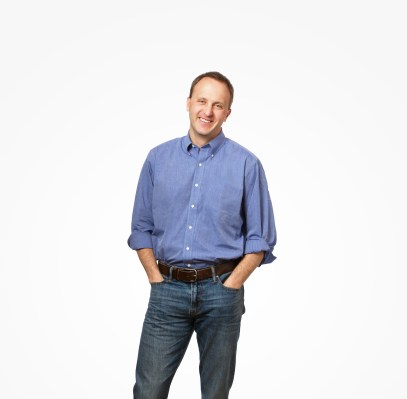Bryan Roberts has seen plenty of market swings in his 18 years as a venture capitalist with Venrock, the venture firm that started as the venture arm of the Rockefeller family and has historically invested in early-stage technology and — Roberts’s specialty — health care start-ups.
Roberts also has a thorough understanding of what’s happening on the U.S. public markets as the chairman of three Venrock portfolio companies that now trade on Nasdaq: Castlight Health, Ironwood Pharmaceuticals, and Achaogen.
Given his background, we asked him recently what he’s expecting to see happen in the health care market next year. Our chat has been edited for length.
TC: Several months ago, the IPO market for health care companies suddenly tightened after a long run. What’s happening?
BR: Health care has tightened, but we could probably talk broadly about the financing market tightening. With the later-stage stuff getting dicier, I’ve been hearing about more IPOs getting pulled. People are either “risk on” or “risk off,” and we’re beginning to back off from full-throttle risk-on environment. I guess I feel like the last four or five months in both biotech and tech more broadly have been akin to what you might have considered “last licks” in a stickball game as the sun was going down, and that shift predates the mutual fund valuation stuff that came out.
I don’t know that I have a good reason as to why biotech pulled back specifically other than pricing concerns mentioned by presidential candidates, some high-profile price gouging, and some clinical trials that read out negatively, though that always happens.
TC: What are you expecting in 2016 and how might it impact your approach?
BR: Well, for one thing, the changing environment may make me feel less out of step with everyone else. We don’t tend to focus on sectors or stages. I invest really broadly across health care, from genomics to diagnostics to therapeutics, so from a fundamental perspective, we don’t tend to follow the herd. In this bullish market environment, we haven’t been doing growth equity investing. We tend to avoid the party seed rounds done by 15 different people.
[All that said,] in health care IT, we’ve moved to earlier stage. We’ve started a couple of companies. We’ve moved to pre-product market fit, which is different than how we’d invested in the space 10 years ago. When we invested in Athenahealth [the now publicly traded company that offers a suite of administrative services for medical practices], they had product market fit, but no one wanted to invest in that space. Now, once something has traction, it’s priced very fully. So earlier this year we started a business with [former Facebook CFO] David Ebersman called Lyra Health. We did the same with [former U.S. CTO], Todd Park at Castlight. We’ll continue doing that for some time.
TC: What does someone need to get a meeting with you?
BR: I don’t focus on stage. I start stuff when I find smart, passionate people who are trying to solve a problem or a market need that most people don’t think can be solved, and who have to have an orthogonal hook regarding how they go about it. If they have those things, I’ll meet with people all day long.
What’s one of the newest, biggest problems that your entrepreneurs are tackling?
Grand Rounds in the health care software services space is tackling the problem of getting the right care to a patient [by giving them access to a second opinion from a medical expert for the condition in question, regardless of geographic location]. They have an expert network of doctors who they can call on to review cases and opine on stuff like that. We gave the service to all our CEOs and entrepreneurs, not just for themselves but their parents. And I’ve never before had a product where we’ve gotten emails like, “You saved my mom’s life.”
TC: How many boards do you sit on?
BR: Twelve companies’ boards.
TC: Including several public companies. Does Venrock have a philosophy about how long it makes sense to remain with a company after its IPO?
BR: We don’t have any hard and fast rules around board seats. We don’t even tie it to how long we keep our stock. Sometimes, we’ll sit on a board for three to five years after a company goes public. There’s usually some point in a newly public company’s life where it’s hated at some point, and there’s no point in getting out at that point. We want to help them build value, so we stay as long as we’re being helpful to the CEO.
TC: Do you expect to see more M&A and IPOs next year?
BR: There seems to be a lot of pressure built into the private market right now. I think that drum beat [to exit] will increase for management and boards. My bet is there will be both more IPOs and more M&A in the near term. We’ll probably see more price sensitivity than in the last 18 to 24 months, but there are still few places to get interesting returns.
TC: More VCs are jumping into data-driven health care. Are they showing up in the deals that interest you?
BR: We’ve seen a lot more interest in health care broadly over last three of four years for different reasons. In biotech space, some huge drugs have attracted a lot of capital — primarily public and hedge fund capital, but there’s been a lot of it. In health care IT, you’ve had a huge influx of startups and therefore VCs owing to changes around payments and regulations. We’re also seeing a bunch of new interest in genomics and DNA that’s driven by IT and big data and the learnings from DNA sequencing, and here, too, we’re seeing a bunch of tech investors coming in.
TC: Think they’ll stay?
It depends on how they do.
